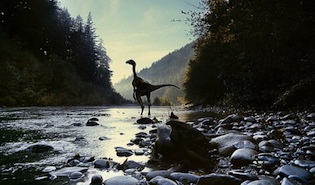And so this is Christmas/ and what have you done
John and Yoko’s War is Over carol barely registered at the time, with its Wall of Sound Phil Spector treatment and post-Beatles despair still in the air. But now it and Stevie Wonder’s Martin Luther King birthday song have become the defaults for this and those times of year. Perhaps it’s the careful rendering of the religious undertones of the holidays, but for me it’s that line. What have I done? Good grief?
On a personal level, there’s plenty of work to be done. I can’t help but think of those so much less fortunate than we are when trying to size up our accomplishments. How trivial thoughts of career and competition and success or failure are. What’s left is family, friends, and love.
I read a funny post today about normal people, a subject also popularized on the Gillmor Gang by Robert Scoble. The idea is that technology people should pay attention to the normal people because that’s the road to real success. Millions of users rather than thousands. The mainstream user rather than the early adopter. Of course I take this personally, having spent so much time delving into the moment of the Big Bang at the expense of the Big Middle.
We went to see Tree of Life last night. By “went” I mean into the living room and renting the film on Comcast On Demand. It was a difficult film to watch, almost no dialogue or explanation of plot and little relief from the terror and beauty of life. As it ended, we realized there would be no answer to the central riddle of the death of a child. I said it really didn’t matter; my wife said she disagreed.
This was not a movie for the normals, even with and expressly because of the presence of Brad Pitt and Sean Penn. This was a big budget and highly technological rendering of an enigma. But within that frame, I found myself intuitively understanding things just as they happened, only later finally getting enough data to confirm my instinct. Something powerful was at work, on the fulcrum between the normal and the human condition.
For most of the last eight years and certainly the last two, we have been driven by the filter of a man who knew he was dying. Steve Jobs may have done what he did given a more gentle fate, but how he did it within the boundaries of his time left has profoundly altered our sense of what we have done.
He seemed to view time as the envelope in which to pour ideas, to calculate the requirements to see it through, to set in motion the forces that reshape the world. No one can say for sure what he thought, but the results continue to pour forth. We see the objects he created; less visible are the structures they imply.
How audacious it was to overturn our love/hate relationship with computers. The first clue was the sofa in the middle of the stage at the iPad introduction. Here was the man who perfected the computer as art form invading the center of the television’s turf. Disrupting the click of the mouse with the insouciant swipe of the hand. Enough of this, what else? Replacing the linear steps of navigating to and from documents with Siri and her guidance. Is this who you mean?
None of these ideas are new. Jobs was not spending his time on incremental improvement. He was choosing his battles and fighting the next war before others could marginalize the opportunity. He viewed each decision, each choice, as requiring his and our best effort at seizing the day while we still had the light. In that pact, we were no more the audience than he was the inventor. We were collaborators in transforming ourselves to the people we thought we could be.
In no way was this his victory over others. You could see in Gates’ reaction, like McCartney’s when Lennon was killed. The sadness of the loss of the partner, that strange grace we find as the dinosaur finds in the dawn of life in Tree of Life. You can see Andy Grove’s Think Paranoid ethic in the way the young animal swivels its head to stay alert, and the curiously human way he or she lets a vanquished foe survive.
Seeing the future is one thing, inventing it yet another, nurturing it and the next Big Bang so rare. It’s because we haven’t seen the explosive creativity of what comes next that we know how precious what we do now can be. Watching Words on Friends play says nothing about the devices used, or even the realtime network traversed, but everything about our evolution in emotional development.
My daughter asked me about the Timeline: Can we go back to the way it used to be? Probably not, I guessed. She’s worried it’s too complicated for a friend coming to her page, too hard to find a video or a picture, too impersonal navigating the constantly flowing stream. It’s like a messy room, she said. She’d rather have a clean room. Really? Wow.
Cleaning up the stream, making it feel like home rather than a transient hotel, these are the things we have not done. Our children look to us for signs of direction, forcing us to act like adults to calm their fears. We have little to teach them except that which we learn of our selves. I’ve always been partial to those who lead not by example but by educated guess. As we stumble around in the dark, we understand how brave and kind were the ones that brought us here.
Another year over/ and a new one just begun
